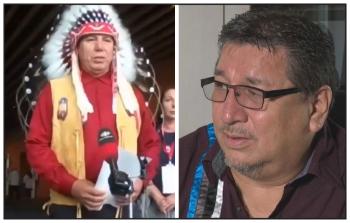Image Caption
Summary
Local Journalism Initiative Reporter
Windspeaker.com
A bilateral mechanism with the federal government that was lauded as a breakthrough by the Assembly of First Nations in 2017 has now been abandoned as something that no longer works.
Chiefs-in-assembly voted to replace the Permanent Bilateral Mechanism/AFN-Canada Memorandum of Understanding framework with something “that includes input and feedback from each region.” The resolution was one of only five regular resolutions dealt with at the Assembly of First Nations annual general meeting held July 5 to July 7 in Vancouver.
“This resolution is about updating that process and making it more regionally based so that each region can actually put forward their own priorities,” said National Chief RoseAnne Archibald, who holds the intergovernmental relations portfolio for the AFN.
The 2017 bilateral mechanism resulted in the AFN co-developing a number of legislative pieces with the federal government, including the Indigenous Languages Act and distinctions-based Indigenous health legislation.
“This co-development issue is a hot button issue,” said Archibald. “We don’t want to co-develop necessarily. We want our rights and title, our inherent and treaty rights, to be respected by this country.”
The bilateral mechanism is no longer meeting its current commitments and not recognizing regional needs, the resolution said.
And, the AFN is not a rights holder, pointed out proxy Doreen Cardinal of Chapeau Cree First Nation.
“It is (the AFN’s) job to facilitate that meeting between me and the Prime Minister and other ministers. I speak for my nation. I speak for my people. I speak for my territory, what happens there,” said Pimicikamak Cree Nation Chief David Monias.
“We are sovereign. We have treaties with the Crown…We are the rights holders. We speak when it comes to our treaties and our land entitlements and anything that relates to that,” he said
Archibald agreed that it was the AFN’s role to serve as “space creator” for discussions.
“Those kinds of discussions around inherent and treaty rights belong in the community. It’s the community that must drive those processes and they’re driving those processes on behalf of the rights holders so…the discussions and the negotiations are very much driven by First Nation communities,” she said.
The resolution called for replacing the bilateral mechanism with a new framework entitled the Healing Path Forward, which is an accord that Archibald promoted during her campaign to become national chief. She also pitched an updated version of it at the AFN’s special chiefs assembly (SCA) last December, where it was defeated.
At that SCA, Archibald was called out for presenting the accord to Prime Minister Justin Trudeau in October when she spoke to him at Tk’emlúps te Secwe̓pemc as he met with Kukpi7 Rosanne Casimir and residential school survivors. The accord had not been given the go-ahead by regional chiefs nor by the chiefs-in-assembly at that point.
Archibald was reminded of that last week.
“I saw an opportunity to tell the Prime Minister, ‘Your MOU is not working and here is a first draft.’ And that did cause some problems. At the same time, it was an opportunity to let the Prime Minister know that the MOU is not working and we need it to evolve,” she said.
“This resolution is very much about empowering you as chiefs…and you need to take back the AFN and every resolution that I’m presenting to you is about you taking back your power and authority to drive these processes of the AFN,” added Archibald.
Dwight Southerland spoke as proxy for Taykwa Tagamou First Nation Chief Bruce Archibald, who moved the resolution.
Southerland said a new accord had to reflect both the current priorities and the current political circumstances.
“It requires an update that includes a formal process for including each of our region’s input in order to advance our own national priorities to the Prime Minister and his Cabinet and most importantly hold them accountable outside our current one-size-fits-all approach,” said Southerland.
The resolution proposes to have regional chiefs take the accord back to their respective regions to get input from chiefs.
However, Alberta does not have a regional chief, pointed out Regena Crowchild, proxy for the Tsuut’ina Nation. Marlene Poitras, who held that position, saw her mandate end June 30, 2021. A new election was not called upon the completion of her term, and she was removed from office by Alberta chiefs.
The Assembly of Treaty Chiefs—which represents 49 First Nations in Alberta—is revisiting its relationship with the AFN.
Treaty 8, which has 25 Alberta First Nations, announced earlier this year that it was officially withdrawing from the AFN.
As the AFN was discussing doing away with the bilateral mechanism, Treaty 8 Grand Chief Arthur Noskey stood outside the meeting, and characterized the AFN as an “administrative organization that has gone rogue and is aiding Canada in the devolution of our treaties. The organization are not right holders and they cannot speak about our treaties…Canada continues to dishonour the Crown and treaty.”
Noskey said the numbered treaties 1 to 11 were international treaties and not signed with Canada.
“We continue to serve notice to Canada that they must deal directly with the sovereign nations and peoples of those international treaties on all legislation and policy that impacts their inherent and treaty rights,” he said.
Local Journalism Initiative Reporters are supported by a financial contribution made by the Government of Canada.

